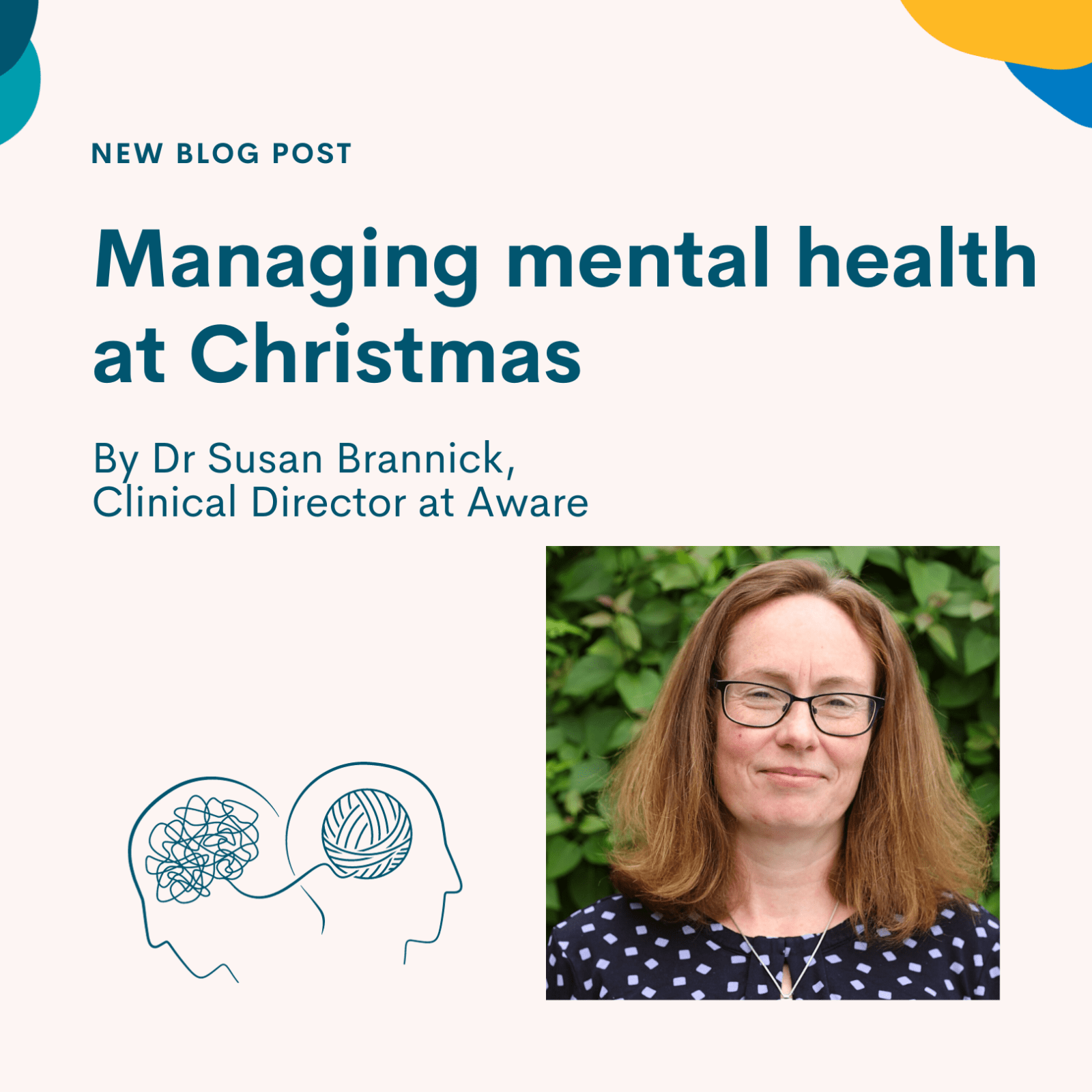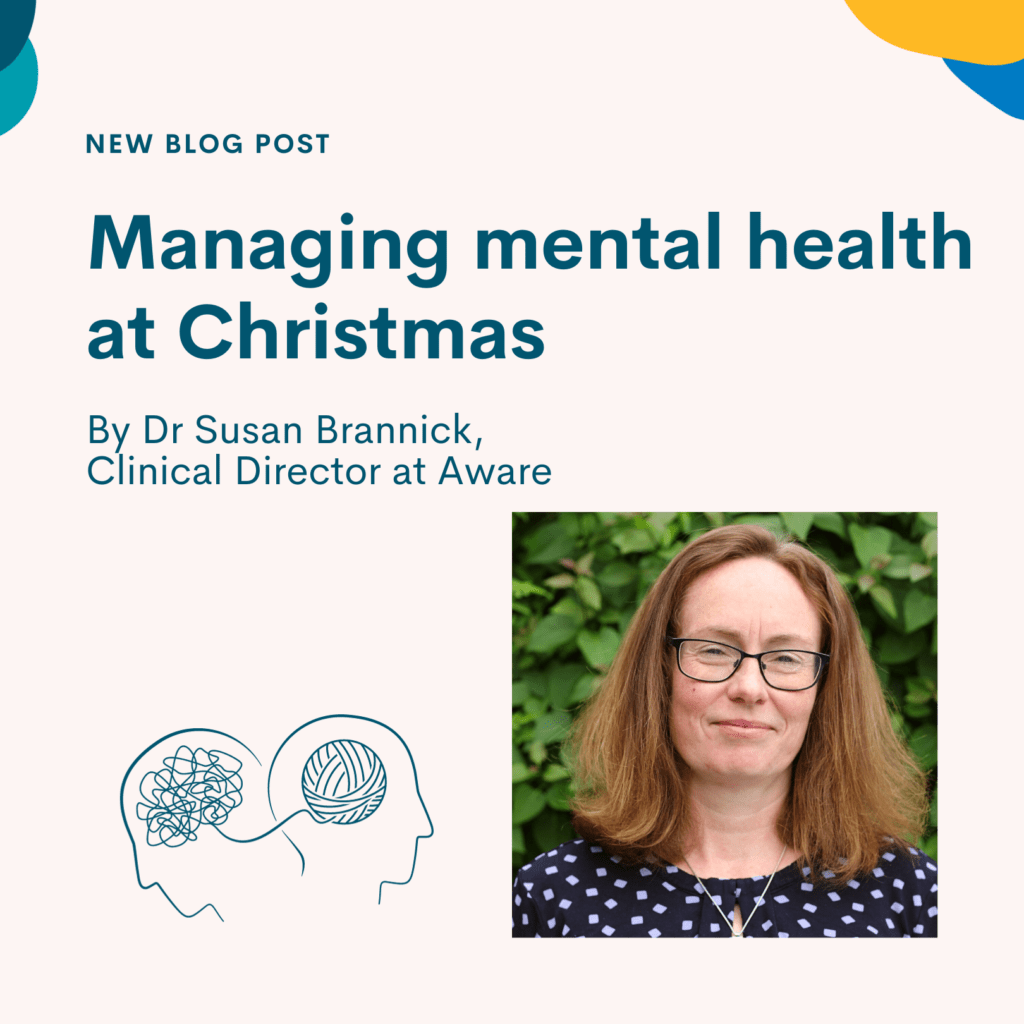
“The times are urgent. Let’s slow down.” – Bayo Akomolafe.
As I write this blog, it seems like the march to Christmas is gathering pace. The busyness, the buying, the preparing for the Christmas break. This can be an exciting and joyful time for many. It can also feel overwhelming and pressured. Exposing and exacerbating old family wounds. Highlighting the loss of loved ones. Navigating Christmas is even harder when trying to manage depression, and this month can be incredibly difficult for many. Isolation will add into this too, although you don’t need to live alone, or be alone, to feel lost in a subterranean maze of loneliness at this time of year. Or indeed at any time of year.
Depression can be complicated, layered, messy, highly individual and isolating and I (and many others) would argue; inextricably entangled in both early and current life contexts and relationships, the latter of which can make this time of year particularly challenging. Aware, alongside many other mental health charities and services will continue to offer support throughout this time.
Perhaps counter to the full immersion in the rush and the focus on festive tasks, the coming weeks could also offer times for reflection, taking stock, looking back, allowing the ending of this year before we move into 2024. There can be great power in the decision to pause. To stop. To breathe. And breathe again. To connect with yourself and notice what is happening in your body, your mind, your emotions. And to respond with care to those experiences. To remind yourself of what matters to you. Perhaps in the storms of stressful situations and relationships, to step out and observe what is happening. To give yourself time. So instead of falling into old habits of reacting, making choices about how you want to move forward. Steve Hayes, the founder of Acceptance and Commitment therapy, has a nice blog piece on three basic steps of doing this in the context of overwhelming feelings here.
Navigating the next few weeks could involve practicing saying no where you can. Connecting with loved ones. Getting outside in nature where possible. Practicing compassion towards yourself and others. Accepting the good enough and putting down the struggle for the perfect. When life feels particularly difficult or overwhelming sometimes considering the smallest possible step can be helpful. What is one small tiny step you can take, that could help.
I think connection and meaning are probably the most important parts to mental health. At Aware, over the last year and beyond, volunteers and staff have offered support, education and information to thousands of people struggling with their mental health across the country. A key part of the offering is a connection. A connection with volunteers and/or others who are living or have lived through similar difficulties. Aware would not exist without the dedicated time and care offered by volunteers. Thank you to all who have joined this year and to those who have committed many years to offering this support. Your contribution is valued and matters hugely. It makes a difference.
Thanks also to all readers of this blog, our hope is that it may offer something of interest throughout the year. I will write again in early January, looking back on trends in depression research and looking forward to what is coming in Aware in 2024. For now though, go gently. Take time where you can, and I hope there can be space to find that pause, in the busyness of it all.
This blog is by Dr Susan Brannick, Clinical Director at Aware as part of a monthly blog series.


